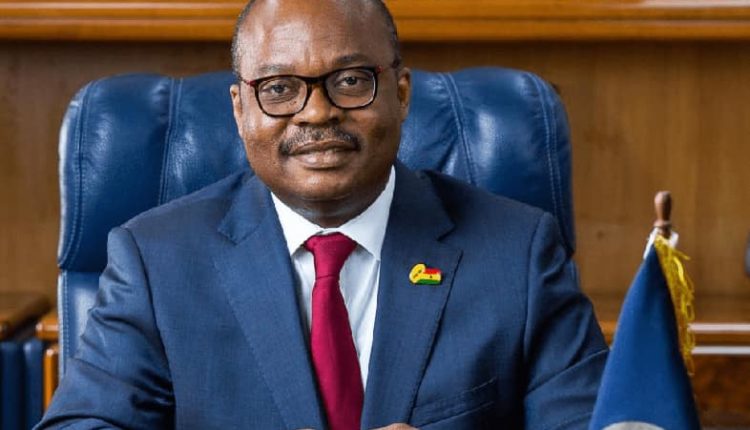The Central Bank of Ghana has restated that inflation is likely to peak in the first quarter of 2023 and gradually ease thereafter.
However, according to BoG, headline inflation is projected to remain above the upper band of 8±2 percent until the second half of 2025.
The Central Bank in its January 2023 Monetary Policy Report disclosed its decision to keep the policy rate high as a result of the significant upside risks to the inflation outlook.
The Monetary Policy report on the domestic front revealed that the continuous monetary policy tightening and the relative stability in the exchange rate in December 2022 led to some moderation in the pace of monthly price acceleration.
Nonetheless, the underlying inflationary pressures remain broadened and could be reinforced by additional shocks in the near-term with the announcement of new revenue measures in the 2023 Budget, additional exchange rate pressures, and upward adjustments in utilities and ex-pump prices.
The bank’s survey of consumers, businesses, and the financial sector showed that inflation expectations eased in December 2022.
This indicated agents’ expectations of moderation in inflationary pressures on the horizon.
In December 2022, monthly inflation started to decline from 8.6% in November to 3.8%, reflecting a slowdown in the rate of increase in inflation.
Month-on-month food inflation also decelerated from 10.4% to 4.1%, while non-food monthly inflation also slowed from 7.2% to 3.6% over the same comparative period.
GSS CPI Official Inflation Rate
Mr. Steve Hanke, a Professor of Applied Economics at Johns Hopkins and Senior Fellow at Independent Institute, has averred that Ghana’s inflation rate is 101.74 %, which is approximately 1.9% more than the “official” rate quoted by the Ghana Statistical Service (GSS)
According to him, rates produced by GSS are not authentic to be used in measuring the current state of the economy.
False inflationary rate, he said, cannot be used to measure the overall impact of price changes for a country’s diversified set of products and services.
Not only that, it tends to give wrong notification concerning the degree of slack or short-term development in the economy, adding that even when the economy is falling apart, rubbish rate from authorities tend to deceive citizens.
“Today, I measure inflation in Ghana at a staggering 101.74%/yr, ~1.9x the ‘official’ rate. The Ghana Statistical Service just keeps producing rubbish.”
This comes after the release of January 2023 Consumer Price Index (CPI) inflationary rate by GSS
The rate of Ghana’s inflation, according to the GSS, recently dropped from 54.1% to 53.6%. This was the first marginal fall against a 19-month upward trajectory. The fall pertained to the month of January 2023.
According to the GSS, month-on-month inflation between December 2022 and January 2023 was 1.7%. Also, food inflation for January was 59.7% whereas Month-on-month food inflation was 2.8% while non-food Inflation (0.563) was 47.9%.
January’s non-food inflation was 49.9%. Month-on-month Non-Food inflation was 0.8% with inflation for locally produced items pegged at 50.0%.
Inflation for imported items was also 62.5%. On a regional level, the Eastern Region recorded the highest year-on-year inflation of 66.2% while Greater Accra followed with an inflation of 65%.


Comments are closed.